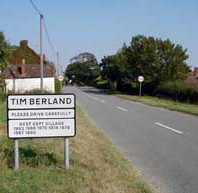
Viking Names
Timberland
Timberland, in the Langoe Wapentake of Lincolnshire, is likely an Anglo-Scandinavian hybrid coming from Old English timber ‘timber, trees; a wooden building’ and Old Norse lundr ‘a small wood’, thus giving the place-name the meaning ‘the grove where timber is obtained’. Alternatively, the first element may be Old Norse timbr ‘timber, trees, wood’.
Read More

Viking Names
Sutterby
Sutterby, in the Candleshoe Wapentake of Lincolnshire, comes from Old Norse sútari ‘a shoe-maker’ and Old Norse bý ‘a farmstead, a village’.
Read More
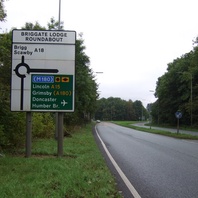
Viking Names
Scawby
Scawby, in the Manley Wapentake of Lincolnshire, likely comes from the Old Norse male personal name and byname Skalli, related to Old Norse skalli ‘a bald head, a bald-headed person’ and bý ‘a farmstead, a village’. Alternatively, skalli could be used to describe a bald hill. In the neighbouring parish of Broughton the minor names Scalehou and Scallehou were recorded in the twelfth and thirteenth century, the first element being the same Old Norse personal name with Old Norse haugr ‘mound’. Likely the Skalli of Skal(l)ehou was the same person as Skalli of Scawby.
Read More

Viking Names
Crosby
Crosby, in the Manley Wapentake of Lincolnshire, is a difficult name. The earliest spelling of the name in the Domesday Book suggests that the name comes from the Old Norse male personal name Kroppr and the Old Norse element bý ‘a farmstead, a village’. However, it is believed that this spelling is an error as it is not supported by later forms which indicate rather a place-name meaning ‘the farmstead, village marked by crosses’, from krossa, the genitive plural of Old Norse kross ‘cross’, with Old Norse bý.
Read More
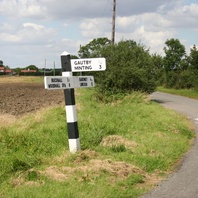
Viking Names
Gautby
Gautby, in the South Riding of Lindsey in Lincolnshire, comes from the Old Norse male personal name Gauti and Old Norse bý ‘a farmstead, a village’.
Read More
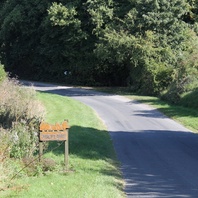
Viking Names
Ruckland
Ruckland, in the Louth Eske Wapentake of Lincolnshire, is a Scandinavian compound formed from Old Norse hrókr ‘a rook’ and Old Norse lundr ‘a small wood’.
Read More
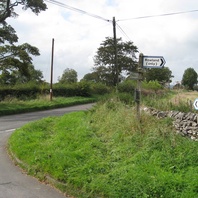
Viking Names
Rowland
Rowland, in the High Peak Hundred of Derbyshire, is a Scandinavian compound from Old Norse rá and Old Norse lundr ‘a small wood’. It is difficult to determine if the first element rá either means ‘a roe, a roe-buck’ or ‘a land-mark, a boundary’. The forms also show the common replacement of lundr with land which also happened in Hasland, Derbyshire.
Read More

Viking Names
Aylesby
Aylesby, in the Bradley Wapentake of Lincolnshire, comes from the Old Norse male personal name Áli and bý ‘a farmstead, a village’. Áli is also the first element of Ailby, Lincolnshire, and Alby, Norfolk.
Read More
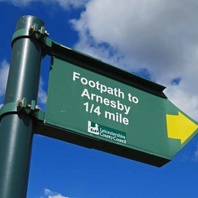
Viking Names
Arnesby
The first element of Arnesby, in the Guthlaxton Hundred of Leicestershire, is likely the Old Danish male personal name Iarund (Old Norse Iǫrundr) which might have given a Middle English form Erendes in the genitive. However, it has been argued that the specific element might be the Scandinavian appellative erendi ‘errand, message’ which may be an unrecorded byname. The second element is Old Norse by ‘a farmstead, a village’.
Read More
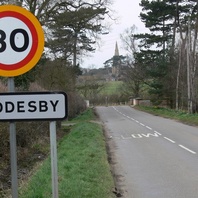
Viking Names
Gaddesby
Gaddesby, in the East Goscote Hundred of Leicestershire, is a Scandinavian compound from the Old Norse male personal name Gaddr, which is an original byname from Old Norse gaddr ‘a goad, a spur’, and Old Norse element by ‘a farmstead, a village’. Alternatively it has been suggested that the first element is Modern English gaddr transferred topographically to the ‘spur of land’ on which the settlement is located. However, it is difficult to conceive the escarpment in which the village sits on as a hill-spur.
Read More
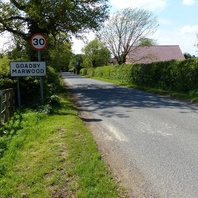
Viking Names
Goadby Marwood
The first element of Goadby Marwood, in the Framland Hundred of Leicestershire, comes from the Old Norse male personal name Gauti (genitive singular Gauta), which is either a short form of names in Gaut- or is derived from an original byname meaning ‘a man from Gautland’. The second element of the place-name is the Old Norse element by ‘a farmstead, a village’. The affix Marwood is the family name of Gaufridus Maureward who held the manor in 1247. The manor remained in the family until at least 1428. The affix Marwood distinguishes the township from Goadby, in the Gartree Hundred of Leicestershire.
